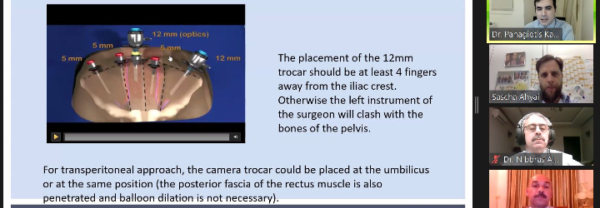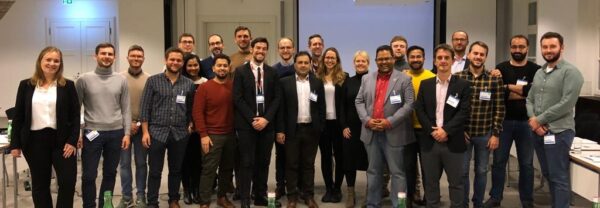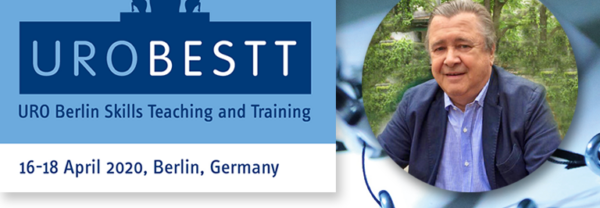Iraqi urologic community to bring “scientificity to the forefront”
The course “A unique possibility for urological education" organised by the European School of Urology (ESU) was incorporated in the programme of the 8th Scientific Congress of the Iraqi Urology Association held in Baghdad from 20 to 22 November 2019.

Presenter Dr. Lütfi Tunç (TR) shared, “In a country that has gone through a history of chaos and challenges, I came across a community that wants to bring scientificity to the forefront. They have shown tremendous respect for science and for the acquisition of knowledge. They have expressed gratitude to those who came to teach them.”
In his presentation “Robot-assisted laparoscopic radical prostatectomy with bladder neck sparing technique”, Dr. Tunç emphasised the significance of anatomical details. He said, “We need to use our experience in endoscopic surgery in anatomy education.”
Dr. Tunç mentioned that observation is highly important in adopting the colour differences of tissues in laparoscopy learning. “I encourage colleagues to watch laparoscopy videos as much as possible,” stated Dr. Tunç.
He also underlined that the basis of performing a procedure well is to learn it correctly in the first place. Dr. Tunç advised: “If your interests lie in laparoscopy and refining your skills, learn from the right surgeons and at centres with sufficient experience. Then amplify that newfound knowledge and skills with ESU activities such as courses, masterclasses, and programmes to name a few.”
According to fellow presenter, Prof. Theo De Reijke (NL), attendance at the course surpassed expectations despite ongoing demonstrations that took place en route to the venue. “The delegates were very eager to learn. Dr. Tunç and I were approached to discuss various topics; the level of interaction was high,” shared Prof. De Reijke. Dr. Tunç agreed, “We were showered with questions evident in their enthusiasm and willingness to learn.”
In Prof. De Reijke’s presentation “Diagnosis nowadays in prostate cancer”, he stated that diagnosis of prostate cancer should be individualised while taking into account risk factors. He said to make use of risk calculators, explained the benefit of pre-biopsy prostate magnetic resonance imaging (MRI) and how to obtain biopsies via the transperineal route.
Prof. De Reijke mentioned that in case of upper tract urothelial cancer, kidney-sparing surgery still lacks the accuracy in determining patients with real low-risk tumours. “Enhanced imaging using optical coherence tomography (OCT), narrow-band imaging (NBI), and confocal laser endomicroscopy (CLE) could be helpful imaging modalities excluding high-risk tumours,” stated Prof. De Reijke.
In his other lecture entitled “EAU Guidelines recommendations on prostate cancer”, Prof. De Reijke said that these guidelines are helpful in deciding what investigations or treatments should be advised. However, these guidelines can only guide the clinician as for an individual patient, other factors and comorbidity could determine which is the best approach and therefore, multidisciplinary team discussions are essential.
The President of the association and fellow presenter at the congress, Prof. Nibbras Al-Hamdani was impressed with the turnout at the course, the quality of the lectures and coverage of the scientific materials. “We might have future ESU courses set up for a full day, with more lecturers and an assessment for the delegates at the end of the course accordingly,” said Prof. Al-Hamdani (IQ).
Interested in attending an ESU course in your city? Visit www.uroweb.org/events/calendar/ and tick the boxes “2020” and “ESU” to view the full list.


